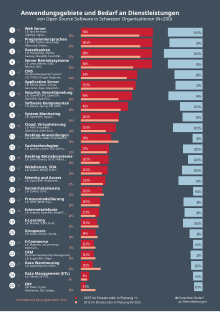History

The sharing of technical information predates the Internet and the personal computer considerably. For instance, in the early years of automobile development a group of capital monopolists owned the rights to a 2-cycle gasoline-engine patent originally filed by George B. Selden. By controlling this patent, they were able to monopolize the industry and force car manufacturers to adhere to their demands, or risk a lawsuit.
In 1911, independent automaker Henry Ford won a challenge to the Selden patent. The result was that the Selden patent became virtually worthless and a new association (which would eventually become the Motor Vehicle Manufacturers Association) was formed. The new association instituted a cross-licensing agreement among all US automotive manufacturers: although each company would develop technology and file patents, these patents were shared openly and without the exchange of money among all the manufacturers. By the time the US entered World War II, 92 Ford patents and 515 patents from other companies were being shared among these manufacturers, without any exchange of money (or lawsuits).
Early instances of the free sharing of source code include IBM's source releases of its operating systems and other programs in the 1950s and 1960s, and the SHARE user group that formed to facilitate the exchange of software. Beginning in the 1960s, ARPANET researchers used an open "Request for Comments" (RFC) process to encourage feedback in early telecommunication network protocols. This led to the birth of the early Internet in 1969.
The sharing of source code on the Internet began when the Internet was relatively primitive, with software distributed via UUCP, Usenet, IRC, and Gopher. BSD, for example, was first widely distributed by posts to comp.os.linux on the Usenet, which is also where its development was discussed. Linux followed in this model.
Open source as a termedit
The term "open source" was first proposed by a group of people in the free software movement who were critical of the political agenda and moral philosophy implied in the term "free software" and sought to reframe the discourse to reflect a more commercially minded position. In addition, the ambiguity of the term "free software" was seen as discouraging business adoption. However, the disambiguation of "free" exists primarily in English as it can refer to cost. The group included Christine Peterson, Todd Anderson, Larry Augustin, Jon Hall, Sam Ockman, Michael Tiemann and Eric S. Raymond. Peterson suggested "open source" at a meeting held at Palo Alto, California, in reaction to Netscape's announcement in January 1998 of a source code release for Navigator. Linus Torvalds gave his support the following day, and Phil Hughes backed the term in Linux Journal. Richard Stallman, the founder of the free software movement, initially seemed to adopt the term, but later changed his mind. Netscape released its source code under the Netscape Public License and later under the Mozilla Public License.
Raymond was especially active in the effort to popularize the new term. He made the first public call to the free software community to adopt it in February 1998. Shortly after, he founded The Open Source Initiative in collaboration with Bruce Perens.
The term gained further visibility through an event organized in April 1998 by technology publisher Tim O'Reilly. Originally titled the "Freeware Summit" and later known as the "Open Source Summit", the event was attended by the leaders of many of the most important free and open-source projects, including Linus Torvalds, Larry Wall, Brian Behlendorf, Eric Allman, Guido van Rossum, Michael Tiemann, Paul Vixie, Jamie Zawinski, and Eric Raymond. At that meeting, alternatives to the term "free software" were discussed. Tiemann argued for "sourceware" as a new term, while Raymond argued for "open source". The assembled developers took a vote, and the winner was announced at a press conference the same evening.
"Open source" has never managed to entirely supersede the older term "free software", giving rise to the combined term free and open-source software (FOSS).
Comments
Post a Comment